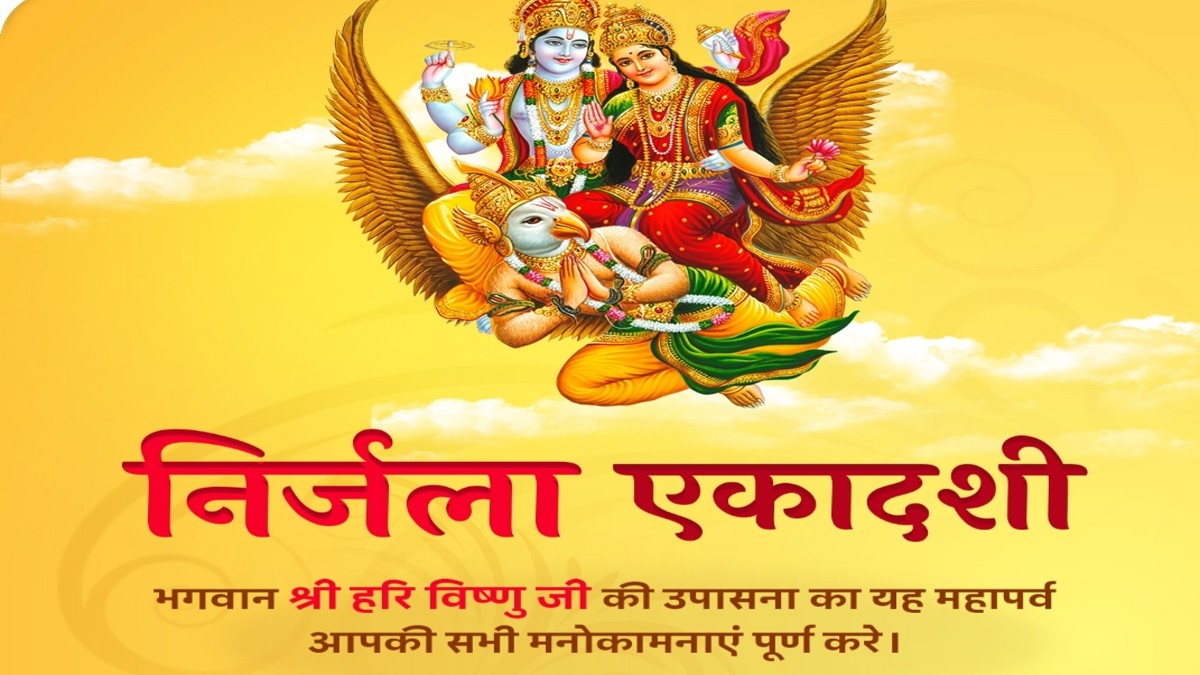Nirjala Ekadashi
Nirjala Ekadashi, known as the most austere and significant of all Ekadashi fasts in Hinduism, holds a place of high reverence and spiritual importance. Observed on the 11th lunar day (Ekadashi) of the waxing phase (Shukla Paksha) in the month of Jyeshtha (May-June), this fast is characterized by its extreme nature, where devotees abstain from both food and water for 24 hours.
Historical and Religious Significance
The term “Nirjala” translates to “without water,” indicating the strict observance of this fast without even consuming water. This Ekadashi is dedicated to Lord Vishnu, one of the principal deities in Hinduism, known as the preserver and protector of the universe.
The origin of Nirjala Ekadashi is linked to a tale from the Mahabharata. It is said that Bhima, the second of the Pandava brothers, was unable to observe the traditional Ekadashi fasts due to his immense appetite. He approached the sage Vyasa, who advised him to observe Nirjala Ekadashi. By undertaking this single, rigorous fast, Bhima would gain the spiritual benefits of all 24 Ekadashis observed throughout the year. Thus, Nirjala Ekadashi is also known as “Bhimseni Ekadashi” or “Pandava Ekadashi.”

Rituals and Observance
The observance of Nirjala Ekadashi involves a set of strict and disciplined rituals:
- Preparation: Devotees begin preparations the day before, known as Dashami. They consume a light meal before sunset and refrain from eating grains and certain vegetables.
- Fasting: The fast begins at sunrise on Ekadashi and lasts until sunrise the next day (Dwadashi). During this period, participants abstain from food and water. This rigorous discipline is intended to purify the mind and body and demonstrate deep devotion to Lord Vishnu.
- Prayers and Worship: Devotees spend the day in prayers, chanting hymns, and reading sacred texts like the Bhagavad Gita and Vishnu Sahasranama. Temples dedicated to Lord Vishnu hold special ceremonies and rituals.
- Charity: Acts of charity and kindness are emphasized. Devotees offer food, clothes, and money to the needy and perform acts of kindness as part of their spiritual practice.
- Breaking the Fast: The fast is broken the following morning with a ritual known as Parana. Devotees consume a light meal, often starting with water and fruit.
Health and Spiritual Benefits
While Nirjala Ekadashi is primarily a religious observance, it is also believed to offer both spiritual and health benefits:
- Spiritual Growth: The fast is seen as a means to attain spiritual merit, cleanse past sins, and move closer to moksha (liberation).
- Discipline and Self-Control: Observing such a strict fast requires immense self-discipline and control, which are virtues esteemed in Hindu philosophy.
- Detoxification: From a health perspective, fasting can help detoxify the body. The abstention from food and water allows the body to rest and cleanse itself.
Cultural Variations
While the core observance of Nirjala Ekadashi remains the same, there are variations in how it is celebrated across different regions in India:
- North India: The fast is particularly popular in North India, where large numbers of devotees observe the fast with great devotion. Temples hold elaborate rituals, and communities come together for group prayers.
- South India: In South India, while the fast is observed, there is often a greater emphasis on temple rituals and community prayers.
- West Bengal and Odisha: In these regions, the day is also associated with the worship of Jagannath, a form of Vishnu, and special rituals are held in Jagannath temples.
Conclusion
Nirjala Ekadashi stands out as a unique and highly revered observance within the Hindu calendar. It symbolizes the ultimate act of devotion, self-control, and spiritual discipline. By undertaking this rigorous fast, devotees seek to purify their souls, earn divine blessings, and foster a deeper connection with the divine. This Ekadashi exemplifies the profound faith and resilience in Hindu devotional practices, making it a cornerstone of religious observance for many Hindus worldwide.

















I learned a lot from this article. Keep up the great work!